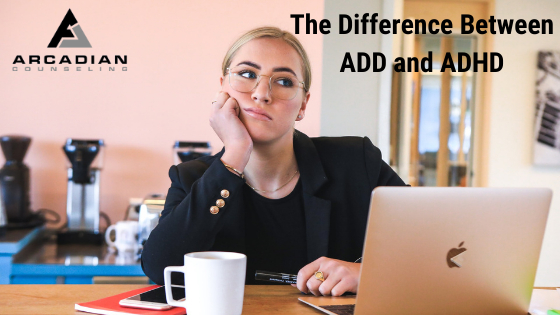If you search Google for information on the difference between ADD and ADHD, you will likely find Attention Deficit Disorder (ADD) and Attention Deficit Hyperactivity Disorder (ADHD) lumped together. In fact, you will often read ADD/ADHD. No wonder people get these two confused all the time.
Before exploring the difference between ADD and ADHD, it’s worthwhile to take a brief historical look at Attention Deficit Disorder to get an idea of how the term came about.
The diagnostic system of psychiatric disorders is relatively young, having been adopted back in 1980. Before that, the term doctors use to describe Hyperactive and Inattentive children was “Hyperkinetic Disorder of Children.”
Then, in 1980, a new publication of the psychiatric diagnostic reference came out called the Diagnostic and Statistical Manual of Mental Disorders, 3rd Edition (DSM III) and the terms “Attention Deficit/Hyperactivity disorder“ (ADHD) and “Attention Deficit Disorder without Hyperactivity“ (just plain ADD) were formalized.
Still awake?
So what is the real difference between ADD and ADHD?

Technically there is no difference between ADD and ADHD. It simply comes down to a specifier to determine the type.
Basically, the real difference between ADD and HDHD is who is diagnosing the person and which terminology (older or newer) they prefer to use. To put it simply, the age of the person who is evaluating the client.
For example the term “Attention Deficit Disorder“ is shorter and easier to say and write. It is often used by people, as well as medical professionals, as a shorthand version of the full blown Attention Deficit/Hyperactivity Disorder. And clinicians that have been around for a while!
To be clear, and technically speaking, there is no longer is an official “Attention Deficit Disorder“ diagnosis. Today it is simply known as Attention Deficit Hyperactivity Disorder (ADHD), with a specifier made to indicate the actual type of ADHD that individual suffers from: inattentive type, hyperactivity – impulsive type, or a combination type.
That being said, ADD is often used as a shorthand to describe the inattentive type of ADHD.
Pretty confusing, huh? Therapists like all those acronyms and letters and initials. It makes us sound smarter and more believable doesn’t it? ????
Treatments
Treatments for ADD and the other types of ADHD (hyperactive-impulsive and combination) are similar and typically include some kind of behavior therapy and/or medication as interventions.
Common therapies include:
Behavioral Therapy: Often using rewards systems, the goal of behavioral therapy is to change negative behaviors into positive ones. This therapy is often used in conjunction with medication.
Cognitive Behavioral Therapy (CBT): This is a type of talk therapy that encourages individuals to explore their thoughts, feelings and behavior. CBT also helps kids and adults build self-esteem, which often takes a hit with a diagnosis of ADHD.
Social Skills Groups: This type of therapy is primarily used to treat kids and adolescents with ADHD. Kids, adolescents, and teens with ADHD typically struggle with symptoms that make it hard to socialize with their peers. A peer social skills group facilitated by a skilled therapist can help them to learn and practice important skills for interacting with their peers.
Life is short. ADD or ADHD isn’t. If you’re struggling with ADD/ADHD (or your child is), find an awesome therapist you like and trust to help you figure out the best course of treatment so you can start thriving again!
James Killian, LPC is the Principal Therapist & Owner of Arcadian Counseling in New Haven, CT where they specialize in helping over-thinkers, high achievers, and perfectionists reduce stress, increase fulfillment and enhance performance so they can move From Surviving To Thriving.



